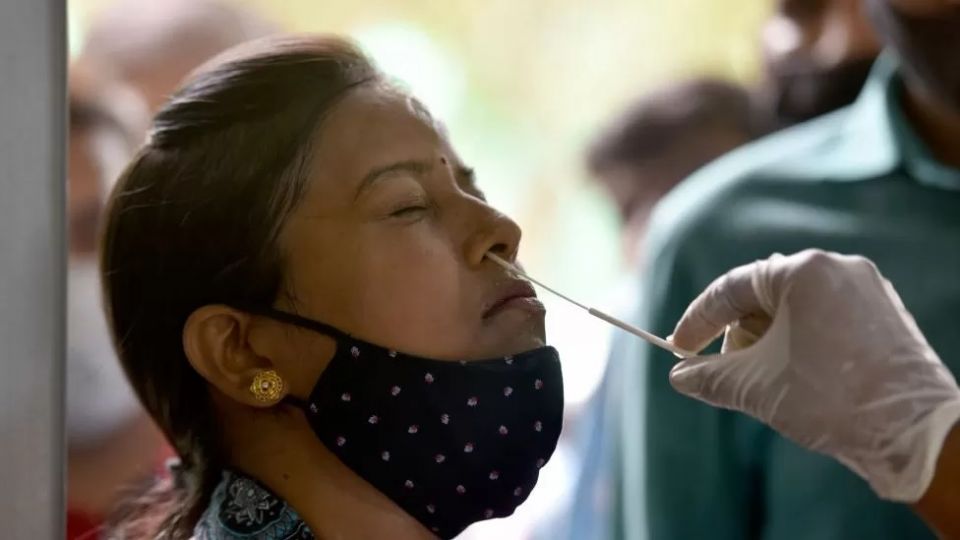
India has stepped up surveillance after a spike in cases in neighbouring China.
People travelling from China and four other Asian countries now have to produce a Covid-19 negative test report before entering India.
On Tuesday, drills were held to check if hospitals could handle a surge.
According to government data, India currently has only around 3,400 active coronavirus cases. But reports of the surge in China and the memories of two deadly Covid waves in 2020 and 2021 in India have made many people fearful.
But experts say there is no reason to worry right now.
"The infection surge in China is on expected lines. If you have a susceptible population that is not exposed to the virus, cases will rise. Nothing has changed for the rest of the world, including India," says Dr Chandrakant Lahariya, an epidemiologist and health systems specialist.
China has been struggling with a rush of Covid cases after it started moving away from its so-called zero-Covid approach which mandated strict lockdowns, quarantining and closed borders. The country is now trying to ramp up vaccinations for its vulnerable elderly population as the case surge strains healthcare systems.
The surge has also led some experts raising doubts over whether the main vaccines used in China - Sinovac and Sinopharm - can provide long-term immunity.
"People are getting infected because BF.7 [the Omicron subvariant that reports say is driving the surge in China] is highly infectious and escapes all previous immunity. If you don't have immunity, you get more diseases which will affect the elderly and immunosuppressed populations," says virologist Dr Jacob John.
Over the past few months, India reported four Covid-19 cases caused by BF.7 - all the patients have recovered, health officials say.
"Covid is still around, people are still getting infected and getting admitted to hospitals. So it's not that we're free of Covid, but it's become like another upper respiratory tract infection, like influenza," says epidemiologist Dr Lalit Kant.
The low caseload in India can be largely attributed to the immunity Indians have already gained over the past three years.
Dr A Fathahudeen, a prominent critical care expert who has treated thousands of Covid patients, says that India's "hybrid immunity wall" against Covid-19 is "satisfactory" as a majority of people have either taken two doses of the vaccine or gained natural immunity from contracting the disease earlier.
He also points out that the vaccines used in India are "more efficacious than the ones used in China".
India has administered more than 2.2 billion doses of the Covid vaccine so far, including for both doses and the booster shot, which India calls a "precaution dose".
He says people should take the booster dose if they haven't already - only around 27% of the population have got it so far.
It's an appeal that other experts broadly agree with.
"With time, the level of antibodies go down. So a third shot is always beneficial and will increase the level of antibodies," Dr Lahariya says, adding that it's good for people above 60 years of age.
"Among the 18-59 year age group, those who are high-risk can get boosters. For others, it's a personal call," he adds.
Experts also agree with the government's decision to step up genome sequencing which allows scientists to identify new strains.
"The current testing strategy of random genome sequencing of 2% of international travellers is enough to pick up any new variant," says Dr Fathahudeen.
Dr John says that the best mantra for the government and ordinary people to follow is "expect the best and prepare for the worst".
"Make it a habit to wear masks in crowded places - watching a football or cricket match, or on a crowded bus or train," he says, adding that he recommends creating "long-term, sustainable behavioural changes".
India had relaxed its mask-wearing rules earlier this year after a drop in infection levels, and it's now common to see people in crowded areas without any precautions.
The bottom-line is "be cautious, wear a mask and watch the news", Dr John says.
Dr Fathahudeen agrees, saying unnecessary crowding should be discouraged and people should wear masks if large gatherings can't be avoided.










